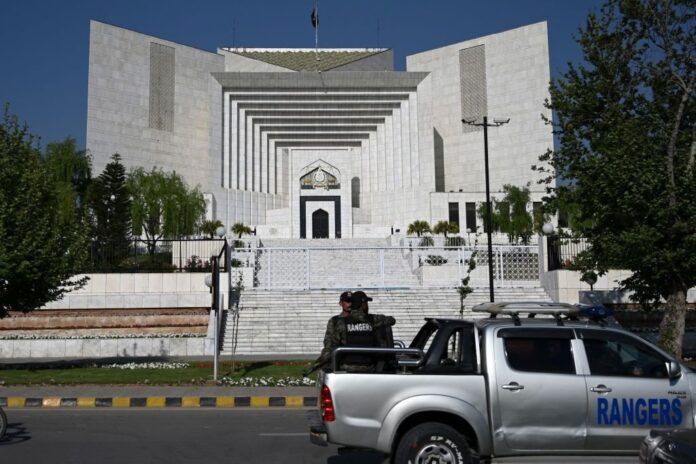ISLAMABAD (INP): Attorney General for Pakistan (AGP) Mansoor Usman Awan on Wednesday detailed the losses incurred during the violent events of May 9 as he again sought the formation of a full court bench.
The development came as a six-member Supreme Court (SC) bench, headed by Chief Justice of Pakistan (CJP) Umar Ata Bandial and consisting Justice Ijazul Ahsan, Justice Munib Akhtar, Justice Yahya Afridi, Justice Sayyed Mazahar Ali Akbar Naqvi and Justice Ayesha A. Malik, heard a set of pleas challenging the military trials of civilians.
During Wednesday’s hearing, AGP Awan said that the violent incidents of May 9 had caused losses of Rs2.5 billion, including Rs1.9bn to military installations. A day earlier, CJP Bandial had observed that civilians should not be put through the rigours and harshness of military courts, since they enjoy certain constitutional protections, and besides, such trials were not according to the Constitution.
At the outset of hearing, AGP Awan came to the rostrum to continue his arguments. He informed the bench that the attack on the Lahore Corps Commander House took place at 5:40pm, noting that all attacks on military installations took place “approximately at the same time”.
“On May 9, sensitive military installations were attacked between 3pm and 7pm,” he said. AGP Awan said that a wall was demolished at the Mianwali airbase where airplanes were parked, adding that fuel for the planes was also present there at the time. He said that the violent incidents of May 9 had caused losses of Rs2.5 billion. The AGP also showed pictures of people entering General Headquarters Rawalpindi as well as images of miscreants wearing the Lahore Corps Commander’s uniform.
The attorney general said that a Canteen Store Department (CSD) store was set ablaze in Lahore. “On May 9, the situation in Sindh and Balochistan was under control,” he noted. He further said that the army showed flexibility regarding the May 9 incidents. “Military officers are not trained to deal with protesters like police officials are,” he said. “Are you saying that army officers only know how to shoot?” CJP Bandial asked. At this, AGP Awan said that army officers were not taught how to disperse such crowds.
At this, Justice Naqvi interjected and said that the case concerning the 21st Amendment was completely different. “Military courts were established through a constitutional amendment,” he said. “You are saying that it is the first time the people attacked military installations,” the CJP remarked. He also asked AGP Awan to talk about the points raised by the petitioners. It was worth mentioned here that the petitions were filed by former CJP Jawwad S. Khawaja, Aitzaz Ahsan, Karamat Ali, and PTI Chairman Imran Khan.
Khawaja, who filed the petition through his counsel Advocate Khawaja Ahmad, requested the top court to declare the trial of civilians by military courts unconstitutional. The former CJP pleaded that Section 2(1)(d)(i) and (ii) of the Pakistan Army Act were inconsistent with the fundamental rights conferred by the Constitution and therefore void, and should be struck down.
Likewise, Ahsan, who has also served as a former law minister and also spearheaded the 2007 lawyers’ movement, explained that the primary purpose of his petition was to ensure that none of the thousands of civilians who have admittedly been arrested for allegedly having partaken in the May 9 violence and being nominated for trial be tried by military courts. The petitioner said he did not seek to scuttle the trial of any civilian before any lawfully established court of criminal jurisdiction.







